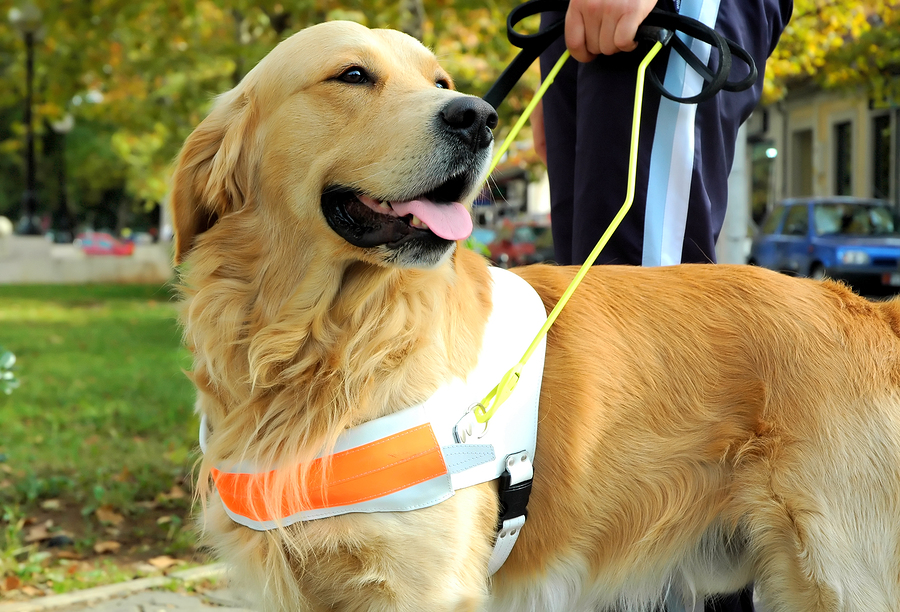
The first thing you need to know is that you can’t claim your dog as a dependent on your tax return. Never! Don’t even think about it. There are no special rules for St. Bernard’s or Great Danes. It doesn’t matter how much your dog depends on you or that he’s a regular member of the family. A dog can never be claimed as a dependent on your U.S. income tax return.
There are only two places where you could claim a dog on your tax return; the first is as a medical expense and the second is as a business expense. Most importantly, it has to be a legitimate expense. Dog expenses claimed on a tax return are likely to get audited. You’ll want plenty of documentation.
Let’s look at medical expenses today. I’ll post about dogs as a business expense later this week. According to the IRS medical expense publication: You can include in medical expenses the costs of buying, training, and maintain a guide dog or other service animal to assist a visually-impaired or hearing impaired person, or a person with other physical disabilities.
If you have a seeing eye dog or a hearing assist dog, then you’ve got an easily proved legitimate expense. Note that the IRS definition discusses “physical” disabilities, mental disabilities are conspicuously absent from this category.
If your service dog is meant to help with a mental disability, you may be able to claim the animal under “impairment-related work expenses.” This might actually work out to be an even better deduction than as a medical expense, if you qualify.
In order to be considered as disabled to claim an impairment-related work expense, you must have a physical or mental disability that functionally limits your being employed, or a physical or mental impairment that substantially limits one or more of your major life activities such as performing manual tasks, walking, speaking, breathing, learning, or working.
I cannot stress enough the importance of legitimacy here. You can’t just go online and purchase a “service dog” vest for your pooch and take him to work with you. The service your dog provides must be necessary for you to do your work in a satisfactory manner.
Here’s a question to ask yourself—if you were to be audited for your dog expense, could you obtain written letters from your doctor and your employer that your dog is necessary for you to work? This is important. I assisted an audit once where the man had claimed his dog as a medical expense. The auditor was willing to allow the expense if the man obtained a letter from his psychiatrist that yes, the dog was part of the man’s treatment. Although the psychiatrist admitted that he had recommended that the man get a dog, he would not issue a letter stating the dog was part of the man’s treatment and the case was lost. If you intend to claim a dog as a medical expense (other than a seeing eye or hearing assist dog), it is absolutely essential that you have the support of your doctor.
